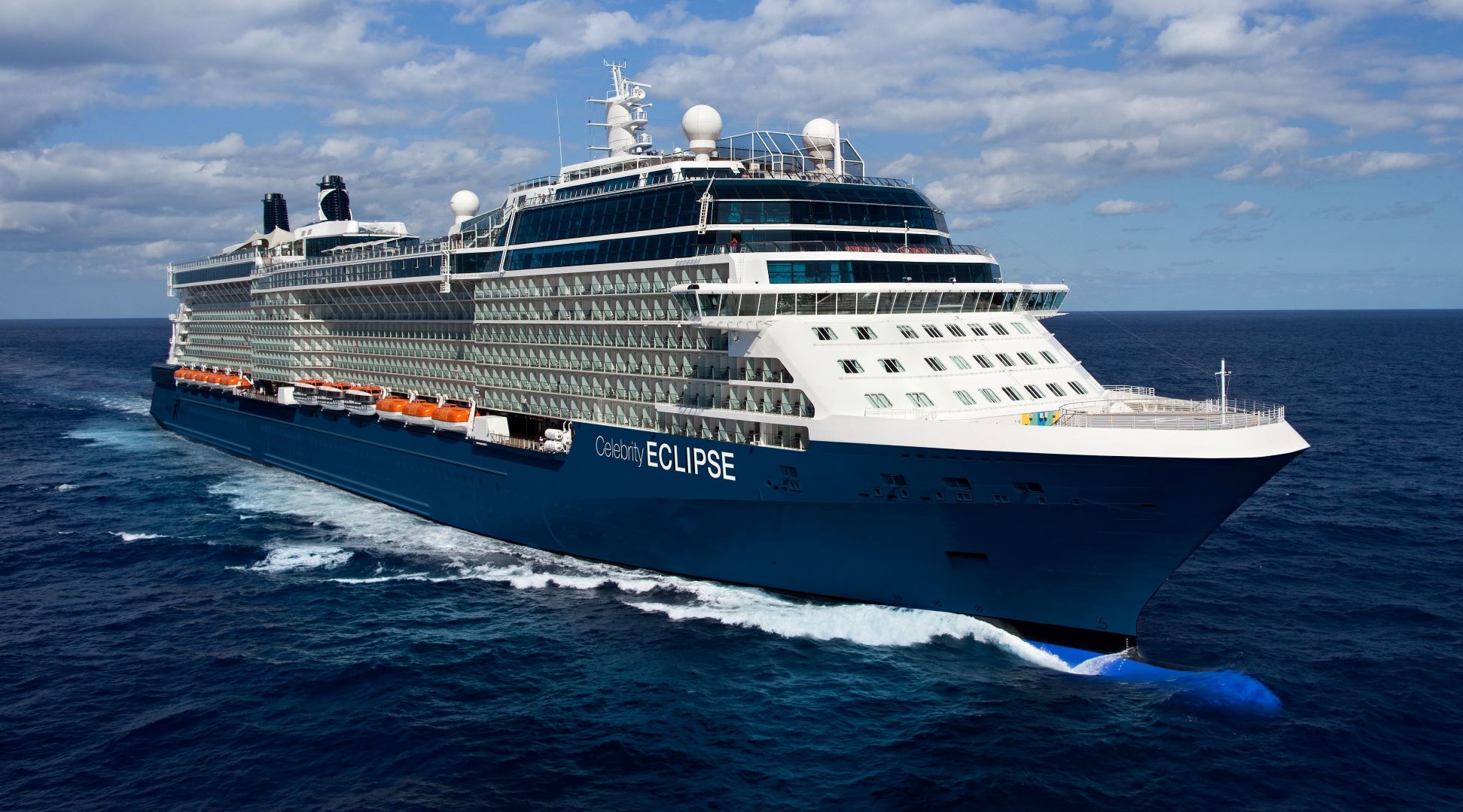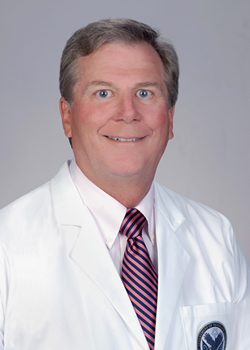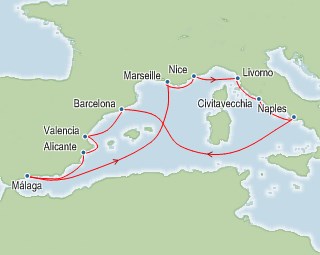14 ACPE Credits
14.0 (part II) MOC points in medical knowledge in the American Board of Internal Medicine's (ABIM) Maintenance of Certification (MOC) program
14.0 Contact Hours



Division of Allergy and Immunology
University of South Florida
Morsani College of Medicine
Tampa, FL
After receiving his medical degree at St. Louis University School of Medicine, he completed his 3 years of Internal Medicine and 2 years in Allergy and Immunology at the University of South Florida in Tampa. He joined the faculty at USF in the Division of Allergy and Immunology. He was recognized for his 30 years of service to USF College of Medicine and to the Tampa VA Department of Medicine. He is a Fellow in the American College of Physicians and the American Academy of Allergy, Asthma and Immunology. He has been elected as The Best Doctors in America for the past decade. He serves as the Director of A/I Fellow Training, and he has trained 75 Allergy/Immunology Fellows. He has an extensive list of contributions in the literature, and presentations at local, national and international meetings. He has been on various boards including the Hillsborough County Medical Association and Florida Allergy Asthma and Immunology Society and many committees in the Academy of Allergy, Asthma and Immunology.
Professor of Medicine
Our staff can assist you with all your travel arrangements.
| DATE | PORT OF CALL | ARRIVE | DEPART |
|---|---|---|---|
| Tue Sep 11 | Barcelona, Spain |
- | 5:00 pm |
| Wed Sep 12 | Valencia, Spain |
7:00 am | 7:00 pm |
| Thu Sep 13 | Alicante, Spain |
7:00 am | 4:00 pm |
| Fri Sep 14 | Gibraltar |
11:00 am | 10:00 pm |
| Sat Sep 15 | Málaga, Spain |
7:00 am | 5:00 pm |
| Sat Sep 15 | *At Sea - Cruising |
- | - |
| Mon Sep 17 | Provence (Marseille), France |
8:00 am | 6:00 pm |
| Tue Sep 18 | Nice, France |
7:00 am | 6:00 pm |
| Wed Sep 19 | Livorno (Florence/Pisa), Italy |
7:00 am | 7:00 pm |
| Thu Sep 20 | Rome (Civitavecchia), Italy |
7:00 am | 7:00 pm |
| Fri Sep 21 | Naples, Italy |
7:00 am | 6:30 pm |
| Sat Sep 22 | *At Sea - Cruising |
- | - |
| Sun Sep 23 | Barcelona, Spain |
6:00 am | - |

Barcelona, Spain -
Barcelona is a one of the world's great cities. Stroll down her tree-lined boulevards, the magnificent Passeig de Gràcia or the more touristed Las Ramblas. On the Passeig, shop a serious fashion district while marveling at examples of Mordenisme architecture, seemingly sculpted from the stuff of dreams (Gaudi's masterpiece of a family home, Casa Batlló is well worth a visit). If a trip on the Passeig hasn't convinced you of Gaudi's genius, a visit to La Sagrada Familia Cathedral will do the trick; this fantastic, soaring marvel will live on in your memory long after you've returned.
Not far from the Passeig and just north of Las Ramblas, the Gothic Quarter (the Barri Gotic) provides an abundance of shopping opportunities for all tastes, and a bit of European history to boot - check out the tranquil Cathedral of Barcelona. To see a bit of local life a visit to a food market is a quick, fun detour: try Santa Caterina near the Cathedral or Mercado de La Boqueria, right off of Las Ramblas.
Barcelona's food is also a highlight: stop into a tapas bar and try a variety of delicacies. "Standard" restaurants of every style are available, too. And, there's music, too! Visit an underground jazz club or the magnificent Palau de la Música Catalana; or stop by the Palau Dalmases for a stunning, flamenco performance (it's near the Picasso museum). Did we mention art? One of the largest collections of Picasso's art is found at the Museau Picasso, and a great collection of contemporary, figurative (i.e not abstract) painting and sculpture is housed at the European Museum of Modern Art just around the corner.
It's probably clear by now that you really can't get it all done in a day (even if all means "just the must-sees"). So, stay for a day or three in the Gothic Quarter or near Plaça de Catalunya and really get a feel for what makes Barcelona such a wonderful place. Partly it's the result of the "accidents" of its history and present: as the regional capital of Spain's prosperous Catalunya region, Barcelona has a "flavor" that is a bit of a mix between Spanish and French (it's located quite close to the French border). Yes, you can practice your Spanish here - it attracts Spaniards from throughout the country - but you'll also see and hear Catalan with it's own charm. You won't regret your time here.
Valencia, Spain - Incredibly, Valencia is a hidden gem of a big city in Spain. Although, it doesn't get the same attention that Barcelona and Madrid get, it competes quite well with those two well known destinations. Food, Shopping, Art and Architecture can be found in abundance; take some time and wander through the winding maze of medieval streets and stubble on your newest favorite shop/bar/restaurant. Too bad cruises don't depart from here; you could certainly spend a few days visiting Valencia's must-sees. One highlight is the City of Arts and Sciences (Ciutat de les Arts i les Ciències) designed by architect Santiago Calatrava. This beautiful complex consists of a cinema, garden, theater, planetarium, science museum and more!
Alicante, Spain - This bright city on the Costa del Sol was founded by the ancient Greeks in 325 B.C, who called it Akra Leuka ("White Summer") for its impressive headlands. The Moors ruled here for over five centuries, and reminders of their passing can be dicovered in the winding alleyways of the Old Quarter. The views from the 1,000 foot Balcon del Mediterraneo are superb.
Gibraltar - As long as the Barbary Apes remain, the British will rule Gibraltar‐this is the tradition that has held for 350 years. These pesky primates are a favorite with visitors despite their incessant chatter and light-fingered ways. Ride to the top of the Rock for great views over the Strait of Gibraltar‐on a clear day you'll see Africa.
Málaga, Spain - Málaga is the gateway to the Andalusian countryside and the Costa del Sol, where you can dig your toes in to the sand of some of the most impressive beaches. But this bustling town has more to offer than surf and sun. Málaga also boasts a number of impressive palaces, including the Moorish Alcabaza and Gibralfaro, as well as the majestic Alhambra Palace.
Provence (Marseille), France - Marseille offers an unexpected view of a mosaic of buildings and National Heritage Sites from the terraces of Notre-Dame de la Garde Basilica that towers above and watches over the city.
Alongside the port the towers of Saint Victor Abbey house crypts that already existed when Christianity was introduced into Provence. The columns of the Palais de la Bourse, the noble facades of the Prefecture and the fountains of the Palais Longchamp are part of the triumphant architecture from the 19th Century that is scattered throughout the city and that gave Marseille renewed splendour.
In the old quarter the houses are built on the sunny slopes ; the clock in the Accoules Bell tower, which was the old Sauveterre tower, still marks the hours of life around the Town Hall, while beyond the dome of the Vieille Charite hospice, Pierre Puget's masterpiece, stands out against the sky. The small streets of the Panier quarter lie a little further on.
Nice, France - Cosmopolitan and chic, sun-drenched and spicy, Nice sparkles as the unofficial capital of the Riviera. Its bustling nightlife, top-notch museums, vibrant arts, and beaches enhance the charm of this Riviera town. Excellent local and regional transportation and a populace accustomed to tourists make Nice a rite of passage travelers young or old.
Livorno (Florence/Pisa), Italy - One of Italy's oldest port cities, Livorno is a small but historically rich city. Check out the red-hued Fortezza Nuova, a 16th-century fortress, and the surrounding area known as Nuova Venezia ("New Venice"), and take a mini-sailboat ride through its charming canals. Cruise to Livorno and use the city as your jumping-off point to the beauty of Tuscany: Take the 30-minute drive to Pisa and snap a quintessential picture with the city's famous leaning tower. Or head to Florence — about an hour from Livorno by car or train — where you can see the unmistakable Duomo ("dome") and the Byzantine-style frescoes of Saint John's Baptistery.
Rome (Civitavecchia), Italy - Rome, Italy’s capital, is a sprawling, cosmopolitan city with nearly 3,000 years of globally influential art, architecture and culture on display. Ancient ruins such as the Forum and the Colosseum evoke the power of the former Roman Empire. Vatican City, headquarters of the Roman Catholic Church, has St. Peter’s Basilica and the Vatican Museums, which house masterpieces such as Michelangelo’s Sistine Chapel frescoes.
Naples, Italy - Capital of Southern Italy and the largest city in Campania, Naples is the third most populated city in Italy (after Rome and Milan) with over a million inhabitants. It's the most important industrial center and trading port for the South. Naples itself can provide a day's fun and entertainment, if its somewhat rundown appearance doesn't dissuade you. Or, join a tour of incredible Pompeii, frozen in time since A.D. 79 when Mt. Vesuvius brought an end to that then-thriving city. Or, take a quick ferry across the bay to the flowery Isle of Capri. Or, (yes, there's more) visit fabulous Sorrento, vacation spot for the well to do.
At Sea - Cruising - Cruising
Our staff can assist you with all your travel arrangements.
Questions? Call us at 800-422-0711.